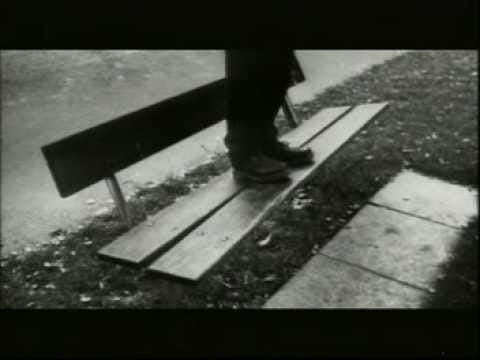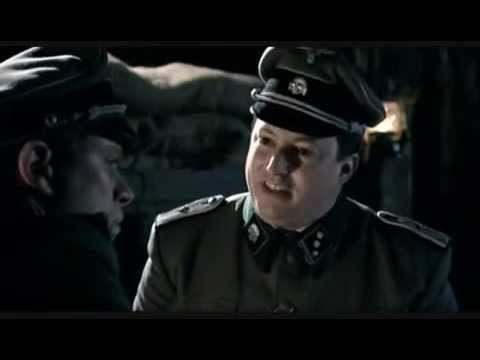Hello friends.
Has it yet ceased to be strange that I am a disembodied voice speaking into disembodied ears?
Good evening St Marks, we are a peculiar unity in these times. Preaching to camera, is news from nowhere, content casting for the clicks, absentee memos to a disconnected diaspora. But I am here. Here I am. Offering at least the image of myself, hoping for connection, offering the vulnerability to bare my soul for youtube, rendering a performance before an audience of one, or none, or a billion.
Hello friends. What did you come out here to see?
We are three weeks in to a journey through this Old Testament book. Moses has died. Joshua has been commissioned. The Israelites are in the wilderness. Spies have been sent into the promised land, and God is preparing Joshua to lead the people across the Jordan.
“all Israel crossed over on dry ground..”
Trying to interpret this prompts three questions:
Who is Israel?
Where are they crossing between?
What is dry ground?
And the answers conceptually are:
Israel are God’s chosen people
They are crossing to God’s promised land
By God’s provided route
~ God’s people to God’s land in God’s way.
And these three interpretations translate to our lives in three uncomplicated applications:
Who is Israel? We are. You and me, dear listener. The church. 1Pt2 “you are a chosen race, a royal priesthood, a holy nation, God’s own people..” Eph2 God has made gentile+jew into one in Rm11 God he has grafted us into the root of Israel. It is us.
And where are we crossing? From any here to any there that God leads ~ perpetually. Out of addiction and into recovery, out of a present predicament and into your calling: obviously, it seems, just now, out of covid and into the new normal.
What is our dry ground? It is the miracle of orderly safe passage across a deathly threshold where God rends apart chaotic waters. God providing a way, a method, a resource - from the outside, against the impossible. A process: if virus then vaccine, if loneliness then companionship, if division then reconciliation.
Interpreting: Assurance + Nuance
In moving to application we read ourselves onto the narrative, symbolically, subjunctively, parabolically, equivalently.
Chris said in week 1, that we are both Joshua and not-Joshua. I want to learn to live inside the paradox and live it out in a way that is productive and not evasive. I speak for myself, but when I gauge myself against biblical characters I am selective and unaccountable in how I choose to own an as-Joshua responsibility. I need help to interpret myself to myself-as-Joshua
Steve said in week 2, that God uses the unlikely and unpopular in such as Rahab. When this is me? Am I Rahab? Am I spies? I want to grapple with the difficult proposition that God would put me in situations which ennoble deceit. Is that it? The wrestle is interpreting and I need help.
So here in week 3 I am considering that God makes a way across the chaotic waters, so a possible reading is that we are Israel, entering post-Covid, and God is providing the dry land of a vaccine. I want to believe this, in the right way and for the right reasons.
These interpretations of the Old Testament are positive and plausible. But. I need to work them out in my own life, and particularly we in our life-together, in the grit of our daily shared existences but life has been so dispersed and disordered that it makes interpretation and application hard and painfully so. I want my exegesis to be less speculative and more grounded in an embodied epistemology of convivial coattention. A sparsity of thick fellowship during Covid and the mediated nature of so much of my worlding has had an eroding effect on my ability to gauge reality, to calibrate anything I presume to understand.
Two issues to solve for:
On their own, these interpretations of Joshua are not self-evident or automatically corroborated - they lack assurance.
And, on their own, these interpretations are not sufficiently detailed or contextually clarified - they lack nuance.
This sermon is an appeal for help, an internal monologue, an invitation to go deeper. I desire assurance and nuance both in my interpretation and my application ~ that is, in our reading into and our living out the Bible.
How can we have confident assurance? Where do you find the the right way to read? What can I say concretely and so rest weight upon risky decisions? What can we say, as a group, collectively and how can we gather consensus across diversity with assurance?
And how can we gain nuanced wisdom? How should we then live from those details? Is there an anatomy of this sort of interpretation. Nuanced wisdom is so needed right nowThere’s so much detail in this biblical text that has come down to us at great cost - we’re leaving value on the table if we don’t have a method of unpicking what-is-the-ark for us, what-might-it-be-to-consecrate-ourselves, what-is-2000cubits.. Etc ~ what does it involve for you and me to live out those details.
Bible-as-Pattern
To this end, (nuance and assurance) I’ve been thinking about the bible, and the equipment I could help fashion for our life together. The Bible claims to be a unified revelation, and it is remarkable to read. It is striking the recurrence of themes, and the recurrence of details. God is godding about God and the bible is all breadcrumb trails and recursive easter eggs, and hyperlinks and knowing winks.
Consider how many times 3-days, or 40 years happens. Consider typologies and archetypes, and the many ways we revisit blood, trees, lambs, firstborns. God’s narrative repetition paints the enchantment of a universe he is authoring.
Yes, these servant-suffering-saviour patterns point to Jesus, but less in an X-marks-the-spot sort of fire-exit signage, and more in the Mandelbrot set sense, that Jesus recurs as the long longed-for anticipated one, the imitated and emulated typology - the seed of all icons and idols. Jesus is the original source.
I’m interested to try to read the Bible as a legible patternbook, and to then seek to live so patterned and be so legible. I consider such a parabolic life goes beyond mere Jungian archetypes and mythological primaries, to engaging an altogether more intricate creative and idiosyncratic playfulness at work in the heart of a personalist universe.
Dry Land
The Christian claims that God patterns a world that is consistent and detailed, a world that is coherently narrative and populated with patterns that are captured sufficiently in the Bible that we are able to make sense of them and sense-make by them. Fundamentally, if the text is so intentionally interlinked it should be possible to read the bible sideways - not as mere gamified Concordance Geekery but to consider that every time that God saves his people through water there is a cumulative portrait of God being embellished differentially by the trope.
In the beginning
Gen1v9 And God said, “Let the waters under the heavens be gathered together into one place, and let the dry land appear.” And it was so.
After the fall
Gen7v11 In the six hundredth year of Noah’s life, on the seventeenth day of the second month—on that day all the springs of the great deep burst forth, and the floodgates of the heavens were opened.
Gen8v11 And the dove came back to him in the evening, and behold, in her mouth was a freshly plucked olive leaf. So Noah knew that the waters had subsided from the earth.
2Ki2v8 “Elijah took his cloak, rolled it up and struck the water with it. The water divided to the right and to the left, and the two of them crossed over on dry ground.”
Jh2v10 And the LORD spoke to the fish, and it vomited Jonah out upon the dry land.
Mt3v16 As soon as Jesus was baptized, he went up out of the water. At that moment heaven was opened, and he saw the Spirit of God descending like a dove and alighting on him.
1Cor10v1-2 For I do not want you to be ignorant of the fact, brothers and sisters, that our ancestors were all under the cloud and that they all passed through the sea. They were all baptized into Moses in the cloud and in the sea.
Chiasm
But perhaps most interestingly for talking about talking about the pattern of water-crossing. Is the couplet of crossings within the extended Exodus sequence functions as a chiasm: from Egypt they cross water to wilderness. Then from wilderness they cross water on dry land to promised land:
Ex14v21 Then Moses stretched out his hand over the sea, and the LORD drove the sea back by a strong east wind all night and made the sea dry land, and the waters were divided.
Js3v17 Now the priests bearing the ark of the covenant of the LORD stood firmly on dry ground in the midst of the Jordan, sand all Israel was passing over on dry ground until all the nation finished passing over the Jordan.
This pair of crossings is asymmetric. One a centrifugal flight-from, and freedom-from, a being anywhere-but. The other a drawing-to, a gathering in a specific destination.
If I could distill my unfinished thoughts on this to one question, it would be, should our primary understanding of the world, of London, of St Marks be primarily leaving-Egypt-into-the-wilderness or should it be leaving-the-wilderness-into-the-promised-land? What is on our near bank, and what is on the far bank? What is your experience?
I am interested to hear the diversity of experiences of Covid, and to hear the metaphors you are living by.
I suspect there are those whose experience has been wilderness. A long ambiguous uncertainty, but daily a walking-with-God as a pillar, a reformation from the abstraction of a working-from-home with some discomfort, a furloughed displacement with benefits sufficient to muster the audacity for a vision of building back better.
I suspect there are those whose experience has been slavery. Precariat workers burning the gig economy at both ends watching exponential and systemic social injustice profit silicon valley in a time of tragedy. A group whose experience is that of being beneath the boot of a globalist cabal of invisible nowhere people, who pine for a liberation theology. A group of the shredded care sector, pastoral workers thanklessly at the medical and pastoral coalface negotiating with extreme biology and extreme social tribalism for the claps. Any exit.
I think it matters. I think not all water crossings are the same. I consider that the church is a mix of many and there is peculiar testimony in hearing each other’s story.
If indeed we are on the banks of the river Jordan looking over to the promised land, questions for discussion could include.
Who are the people of God now? What group, by their collective identity and mutual practice and shared resource and civic agency manifests the visible image of God?
What is for us to consecrate ourselves? What sort of ritual purity do we lack, what form of collective repentance should we engage to create such purity? What is the ark of the covenant for us now? What costly sacrifice, what visible testimony goes before us as we cross? And how might we imagine a way that is, as the text states “Not a way they had been before”?
Who is Moses? Who was our patriarch? What demagoguery were we led by to this point? What would it be for me to disqualify myself from entry to the promised land?
Who is Joshua? Who would God exalt to credible leader? Who needs to be bold and courageous? What would it be for God to exalt them? What form of leadership is distinguished from wilderness leadership?
What is the promised land? What would it be for us to send spies in? Do we consider that this promised land the other side of Covid is an occupied territory?
Patterns and practices
I consider that, we need epistemological assurance and nuance, and that by a practice of bible-reading and life-together, we, St Marks can grow this way.
1. Gain assurance through accumulating patterns from the bible
2. Gain nuance through comparing patterns from the bible
3. And then, we can become patterns that are assured by cumulative weight of testimony borne out in our collective practice.
4. And we can be patterns that are nuanced by practicing lives in proximity to and in critical dialogue with one another.
So. If the world is amidst a meaning crisis, I want to be a part of a participatory plausibility structure, a community that can be robustly humble and gently confident in discerning the times.
Who are we?
Where are we crossing between?
What is our dry ground?















Share this post